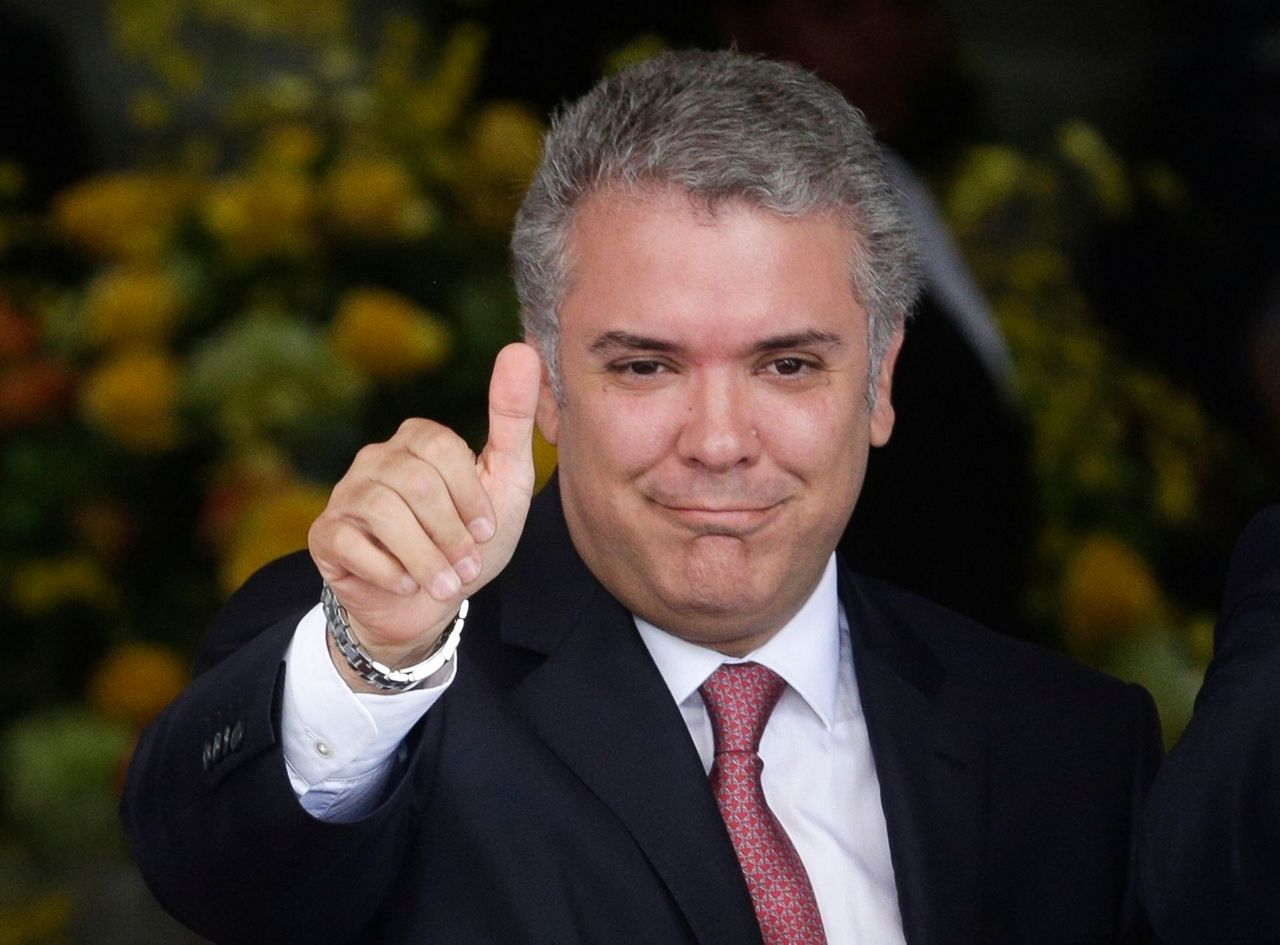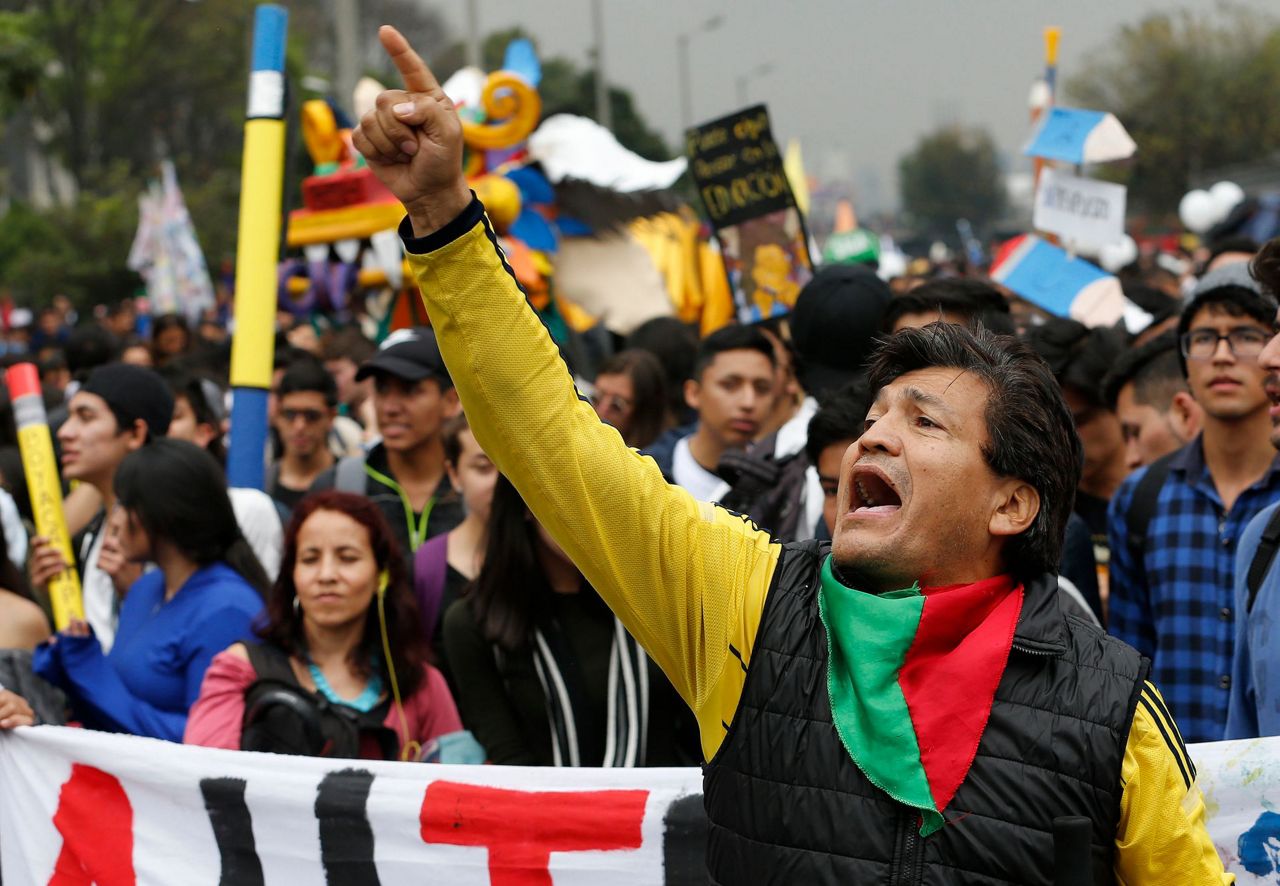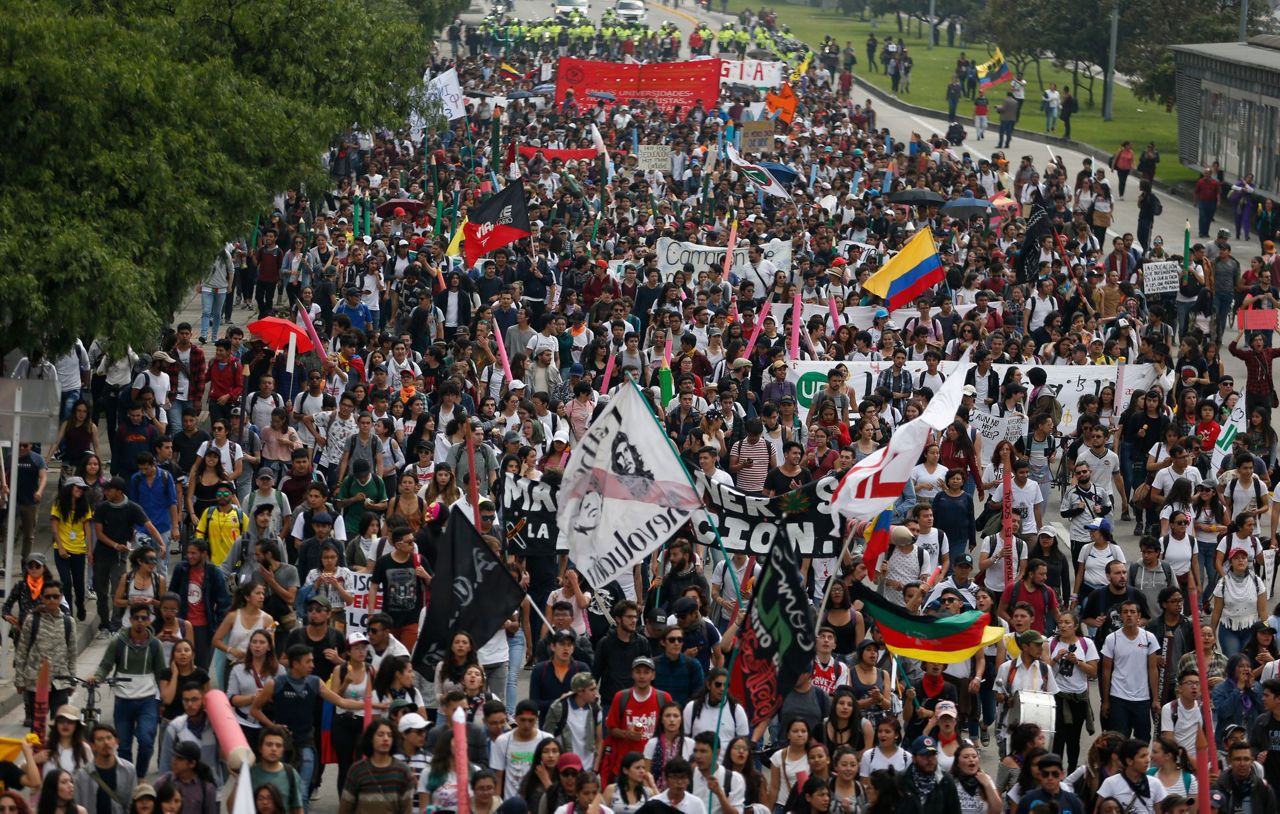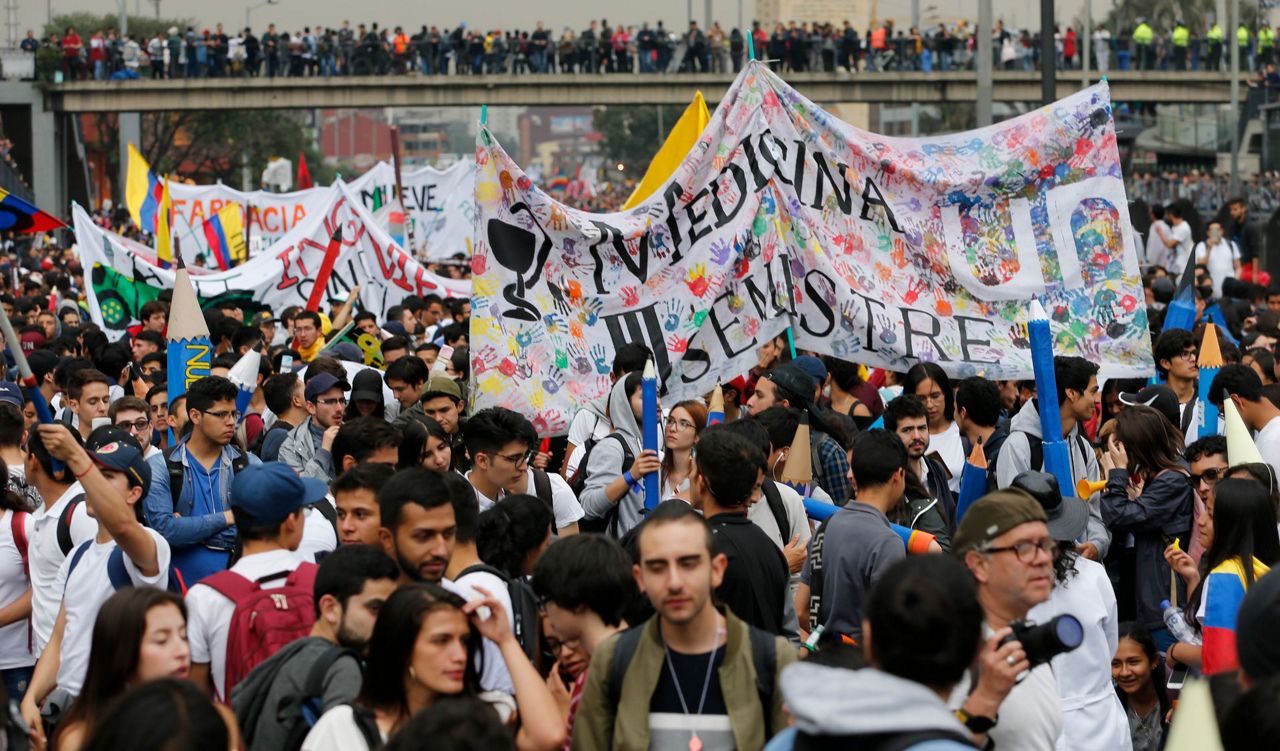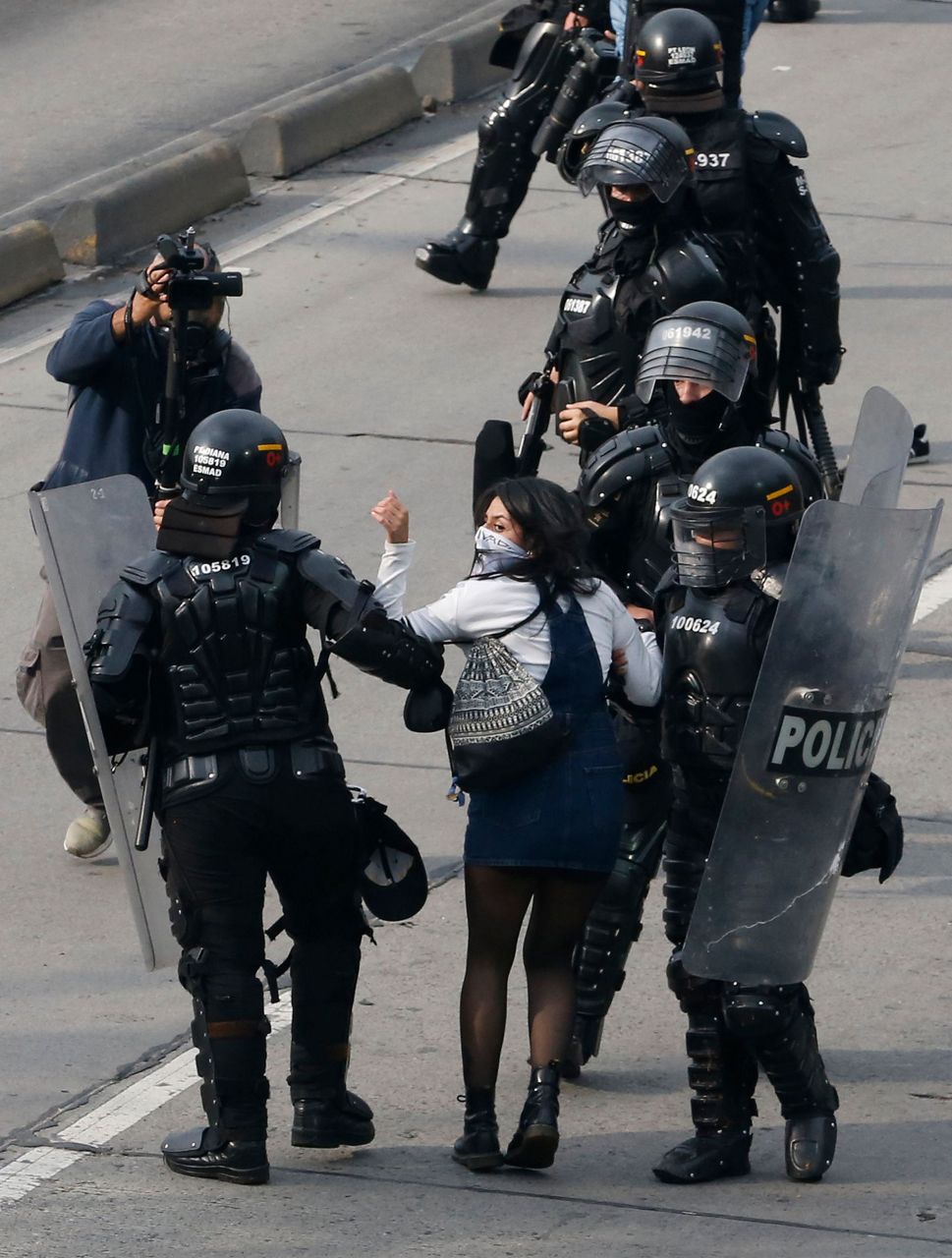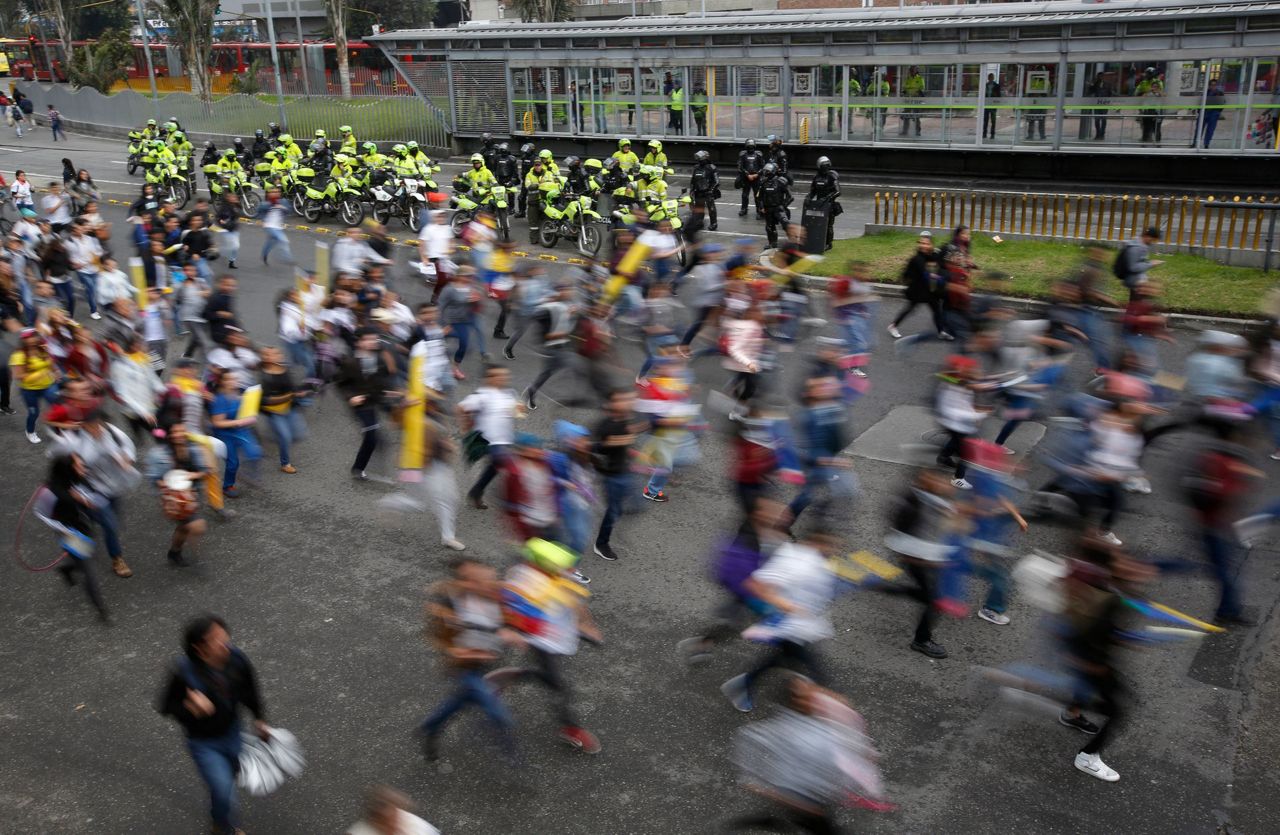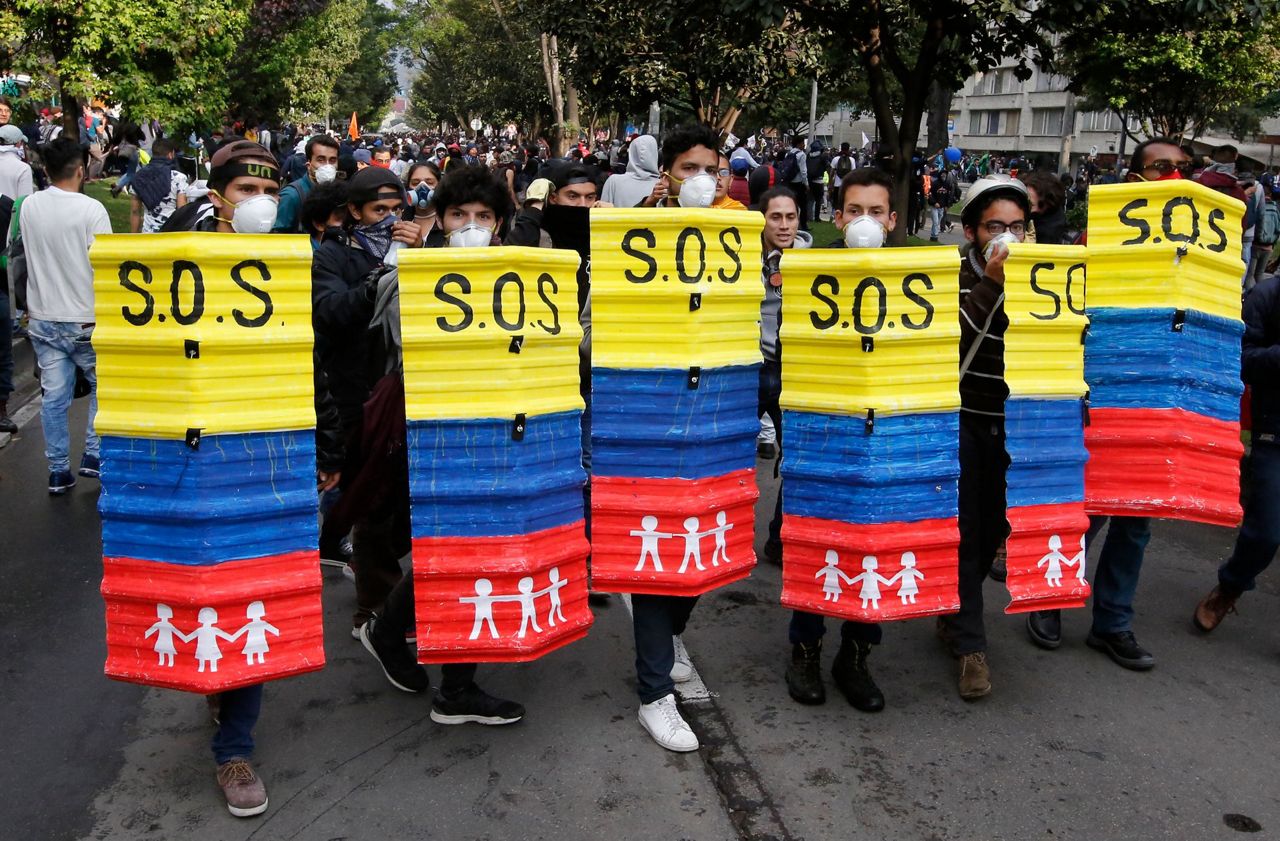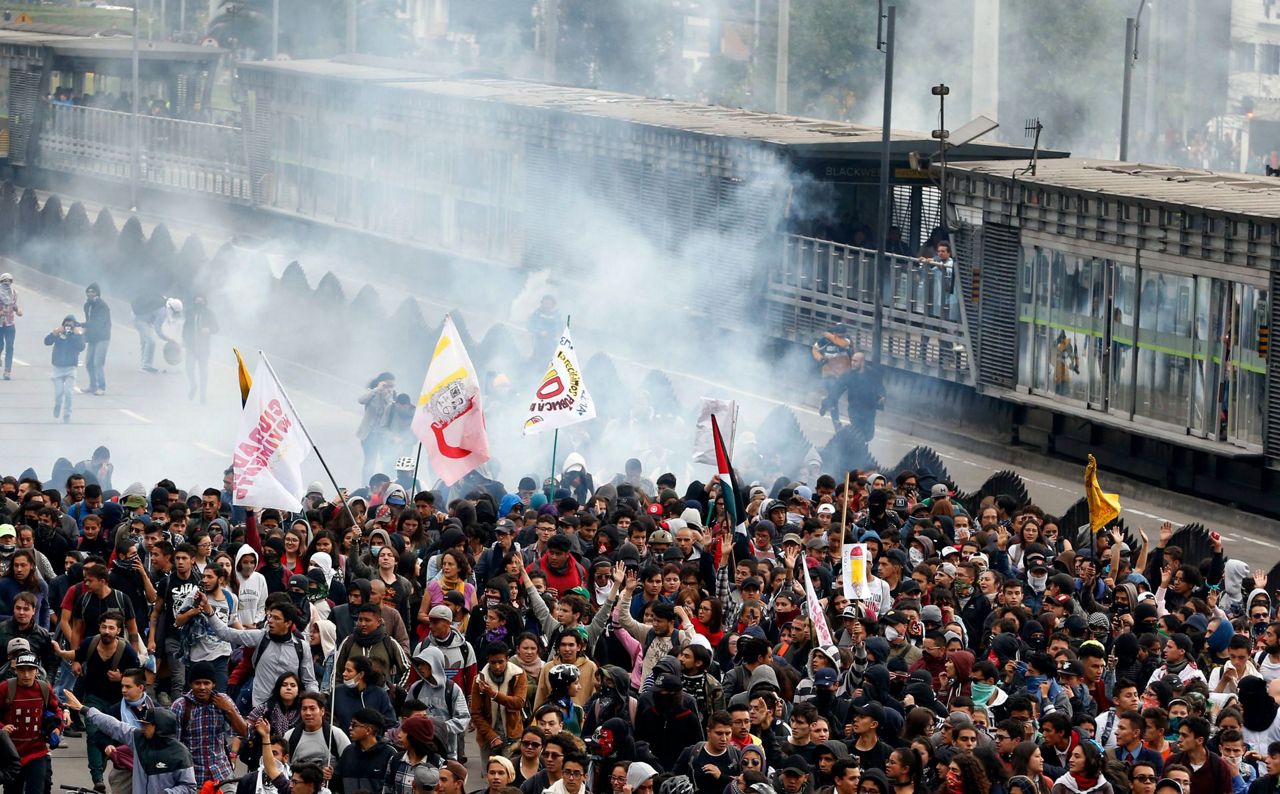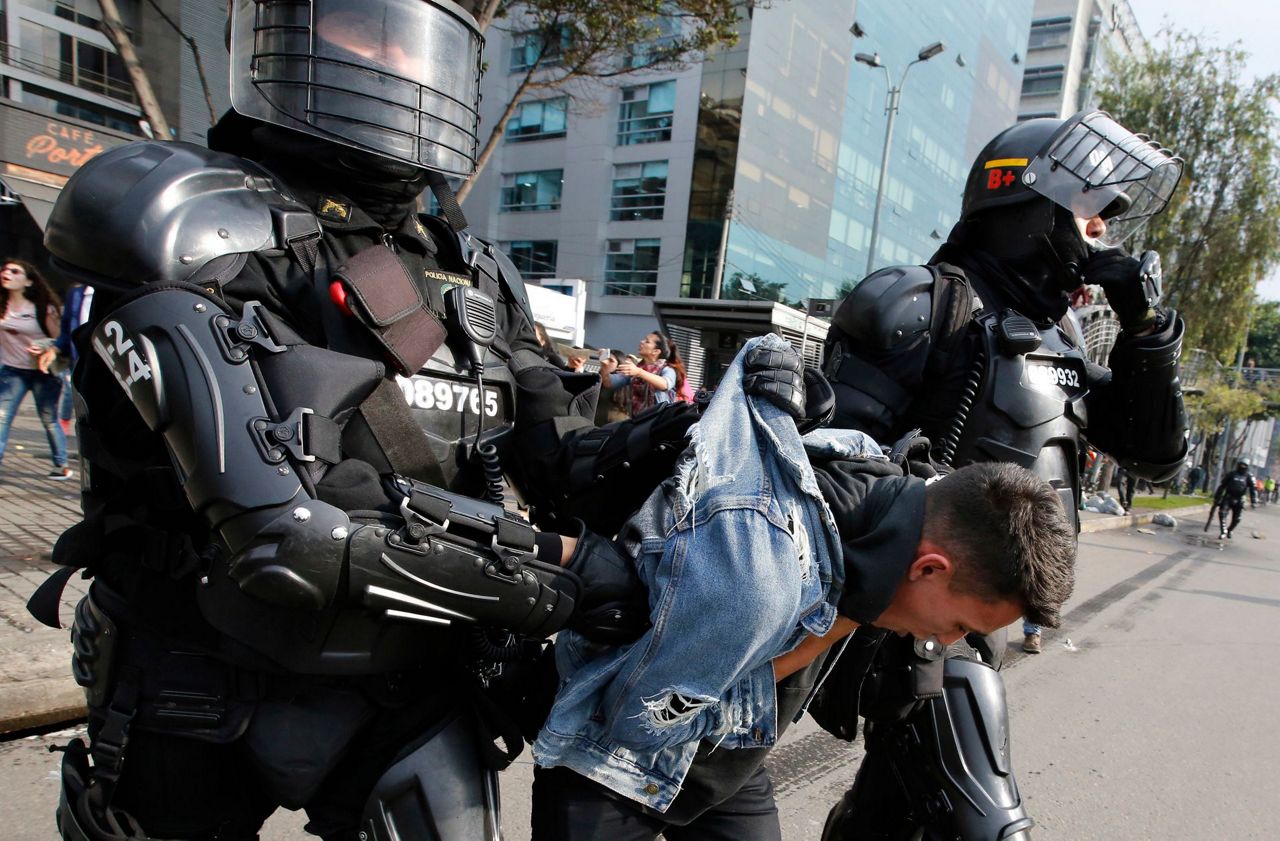BOGOTA, Colombia (AP) — Ivan Duque was sworn in as Colombia's president in August after an easy election victory in which he promised to boost the sluggish economy by decreasing corporate taxes, while bringing order to rural areas that have long been plagued by drug trafficking and violence between armed groups.
But as he completes his first 100 days in office his plans to modernize Colombia have been beset by street protests and an unruly congress that has blocked some of his flagship initiatives.
Even his own party members have spoken against a proposed tax overhaul needed by the government to raise $4.5 billion for social programs that include efforts to reintegrate thousands of former guerrilla fighters.
The 42-year-old conservative also faces challenges on the international front. Colombia is grappling with a mass influx of Venezuelans fleeing the economic collapse in their neighboring homeland, and it's under pressure from the U.S. to reverse a boom in coca growing that has put output of the main ingredient for cocaine at record levels.
Duque has seen his approval ratings slump, which could further undermine his ability to push his political and economic agenda. A recent poll said only 27 percent of Colombians approve of Duque's administration, down from 52 percent in August.
"So far he hasn't been able to keep anybody happy," said Sergio Guzman, a political risk consultant in Bogota. "I think he must be realizing that governing this country is very difficult."
The administration has been most recently targeted by a wave of student protests that have disrupted life in Colombia's main cities and led to sporadic clashes with police. Student unions are demanding the government spend at least $1.5 billion on public universities that have seen enrollment quadruple over the past two decades.
Duque has so far promised only a third of that amount, saying the government has no more resources available.
To raise more funds for education and social programs, Duque has proposed a 19 percent value added tax on staple goods such as eggs and milk. That is part of a broader tax measure that also would raise taxes on large inheritances and decrease the income tax for small businesses in a bid to generate more formal jobs.
The president's own party, the Democratic Center, has opposed the bill, saying taxing food staples could hurt the middle class. It leaves him without enough congressional support to pass the measure.
"We have to strengthen our work in congress," Duque said Friday during an interview with Colombia's BLU radio. He also called on politicians to avoid populist tactics and to engage in a "reasonable" discussion of the tax bill.
Duque's administration has also been off to a rocky start in the countryside, where violence is on the rise in some areas that were formerly controlled by the Revolutionary Armed Forces of Colombia, which has demobilized under a peace accord to end five decades of civil conflict.
According to a report published Friday by the Ideas for Peace Foundation, a think tank, 36 human rights leaders were killed in Colombia during the past three months, twice as many as in the same period last year. The number of people displaced by armed conflict increased by 20 percent, it said.
Much of the violence is happening in areas that are now under the influence of the National Liberation Army, a guerrilla group that hasn't made peace with Colombia's government.
Peace talks with the group have been suspended under the Duque administration, which has said it will negotiate with the rebels only if they stop conducting kidnappings and staging attacks on the military.
Juan Carlos Garzon, a conflict analyst at the Ideas for Peace Foundation, said Duque will have a hard time resuming the negotiations. His party is demanding tougher conditions for talks, including the withdrawal of amnesty for rebels who have been involved in drug trafficking.
"Duque was elected by people who were critical of the previous peace process with the FARC," Garzon said. "But now that he is in power he has also realized that he must defend and pursue a peace process that is widely backed by the international community."
Duque has acknowledged that many of his political proposals have been controversial. But on Friday he urged Colombians to be patient.
"I want the country to know that I will work each day to win the peoples' hearts," he told Blu Radio. "And I want to prove that we are capable of transforming our realities."
Copyright 2018 The Associated Press. All rights reserved. This material may not be published, broadcast, rewritten or redistributed.



